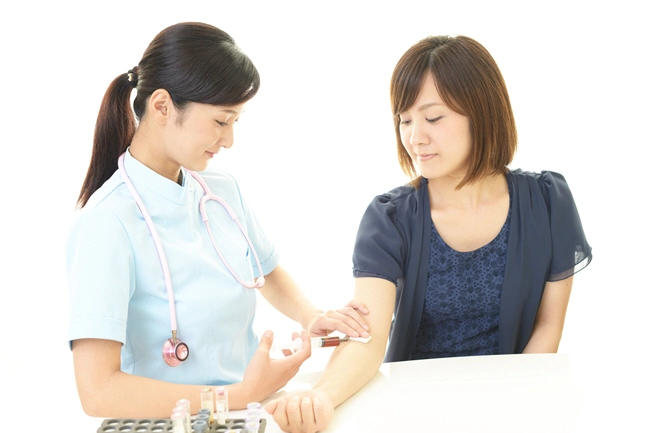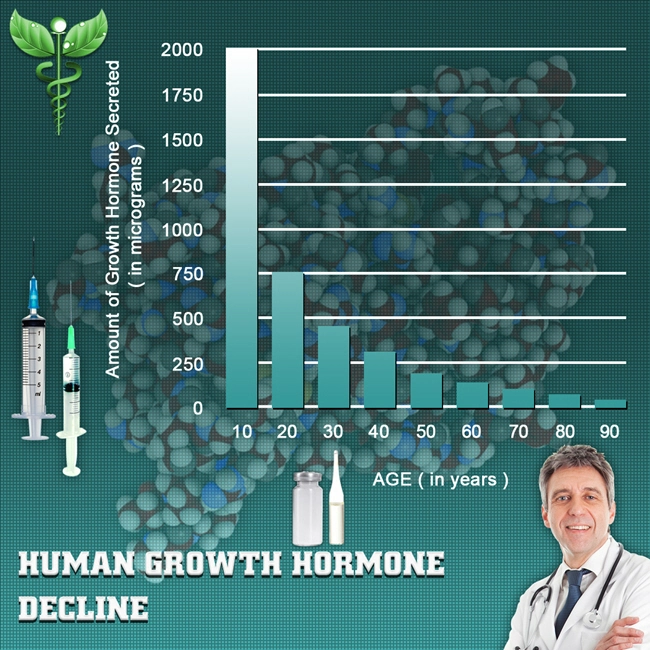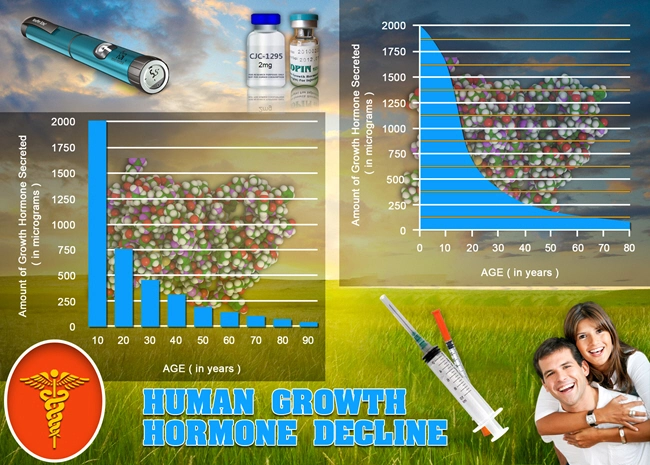
Introduction to Hypogonadism
Hypogonadism, a condition characterized by the body's inability to produce sufficient testosterone, affects a significant number of American males. This hormonal imbalance can lead to a variety of health issues, ranging from decreased libido and muscle mass to more severe systemic effects. Among these, the impact on eye health is a critical yet often overlooked aspect of hypogonadism.
The Connection Between Testosterone and Eye Health
Testosterone, the primary male sex hormone, plays a crucial role in maintaining overall health, including ocular function. Research has shown that testosterone receptors are present in various parts of the eye, such as the cornea, retina, and lacrimal gland. These receptors suggest that testosterone may influence eye health directly. For instance, studies have indicated that testosterone can affect tear production and the integrity of the corneal epithelium, which are essential for maintaining clear vision and preventing dry eye syndrome.
Hypogonadism and Its Ocular Manifestations
In men with hypogonadism, the reduced levels of testosterone can lead to several ocular issues. One of the most common problems is dry eye syndrome, which occurs due to decreased tear production. This condition can cause discomfort, blurred vision, and increased risk of corneal damage. Additionally, hypogonadism has been linked to an increased prevalence of cataracts and glaucoma, both of which can significantly impair vision if left untreated.
Clinical Implications and Diagnostic Considerations
For American males diagnosed with hypogonadism, regular eye examinations are crucial. Ophthalmologists should be aware of the patient's hormonal status, as it may influence the diagnosis and management of ocular conditions. Routine screening for dry eye, cataracts, and glaucoma can help in the early detection and treatment of these conditions, thereby preserving vision and quality of life.
Management and Treatment Strategies
The management of hypogonadism-related ocular issues involves a multifaceted approach. Hormone replacement therapy (HRT) is often recommended to restore testosterone levels to normal. This treatment can help alleviate symptoms of dry eye and potentially reduce the risk of other ocular complications. In addition to HRT, symptomatic relief for dry eye can be achieved through the use of artificial tears, punctal plugs, and other ocular lubricants.
Preventive Measures and Lifestyle Adjustments
Preventive measures are essential in managing the ocular health of men with hypogonadism. Maintaining a healthy lifestyle, including a balanced diet rich in omega-3 fatty acids and antioxidants, can support overall eye health. Regular exercise and adequate hydration are also beneficial in promoting tear production and reducing the risk of dry eye. Furthermore, avoiding smoking and limiting screen time can help mitigate the risk of developing ocular conditions associated with hypogonadism.
The Role of Patient Education and Awareness
Educating American males about the potential ocular implications of hypogonadism is vital. Increased awareness can lead to earlier diagnosis and intervention, which are key to preventing vision loss. Healthcare providers should emphasize the importance of regular eye check-ups and discuss the potential benefits of hormone replacement therapy in managing both hypogonadism and its ocular manifestations.
Conclusion: A Call to Action for Improved Eye Care in Hypogonadism
The link between hypogonadism and eye health underscores the need for a comprehensive approach to managing this condition. By integrating regular eye examinations, hormone replacement therapy, and lifestyle modifications, American males with hypogonadism can better protect their vision and overall health. As research continues to unravel the complexities of this relationship, it is imperative that healthcare professionals remain vigilant and proactive in addressing the ocular needs of their patients with hypogonadism.
Contact Us Today For A Free Consultation
Dear Patient,
Once you have completing the above contact form, for security purposes and confirmation, please confirm your information by calling us.
Please call now: 1-800-380-5339.
Welcoming You To Our Clinic, Professor Tom Henderson.

- Unveiling the Link Between Hypogonadism and Mental Health: A Comprehensive Guide for American Males [Last Updated On: February 24th, 2025] [Originally Added On: February 24th, 2025]
- Unveiling the Best Practices in Monitoring Hypogonadism: A Guide for American Males [Last Updated On: March 4th, 2025] [Originally Added On: March 4th, 2025]
- Hypogonadism and Sleep Disorders: A Bidirectional Impact on Men's Health [Last Updated On: March 5th, 2025] [Originally Added On: March 5th, 2025]
- Unveiling the Muscle Health Dilemma: The Role of Hypogonadism in American Males [Last Updated On: March 16th, 2025] [Originally Added On: March 16th, 2025]
- Navigating Hypogonadism in Men with Autoimmune Diseases: A Comprehensive Guide [Last Updated On: March 16th, 2025] [Originally Added On: March 16th, 2025]
- Unveiling the Link Between Hypogonadism and Impaired Wound Healing in American Males [Last Updated On: March 16th, 2025] [Originally Added On: March 16th, 2025]
- Unraveling the Connection Between Hypogonadism and Parathyroid Health in American Males [Last Updated On: March 16th, 2025] [Originally Added On: March 16th, 2025]
- Hypogonadism and Testosterone Therapy: Benefits, Risks, and Management for American Males [Last Updated On: March 17th, 2025] [Originally Added On: March 17th, 2025]
- Exercise as a Key Strategy in Managing Hypogonadism in American Males [Last Updated On: March 17th, 2025] [Originally Added On: March 17th, 2025]
- Hypogonadism's Impact on Liver Health: Diagnosis, Treatment, and Lifestyle Management [Last Updated On: March 18th, 2025] [Originally Added On: March 18th, 2025]
- Hypogonadism in American Males: Diagnosis, Treatment, and Medical Education Essentials [Last Updated On: March 19th, 2025] [Originally Added On: March 19th, 2025]
- Hypogonadism and Chronic Pain: Integrated Treatment Approaches for American Males [Last Updated On: March 19th, 2025] [Originally Added On: March 19th, 2025]
- Exploring Alternative Therapies for Hypogonadism: Benefits, Risks, and Options for American Men [Last Updated On: March 19th, 2025] [Originally Added On: March 19th, 2025]
- Hypogonadism and Thyroid Function: Interplay and Impact on Male Health [Last Updated On: March 19th, 2025] [Originally Added On: March 19th, 2025]
- Hypogonadism and Autoimmune Disorders: Insights and Management for American Males [Last Updated On: March 20th, 2025] [Originally Added On: March 20th, 2025]
- Ethical Challenges in Diagnosing and Treating Hypogonadism in American Males [Last Updated On: March 20th, 2025] [Originally Added On: March 20th, 2025]
- Hypogonadism's Impact on Prostate Health: Understanding and Managing Risks in American Males [Last Updated On: March 20th, 2025] [Originally Added On: March 20th, 2025]
- Hypogonadism Screening and Management Guidelines for American Males [Last Updated On: March 21st, 2025] [Originally Added On: March 21st, 2025]
- Hypogonadism's Impact on American Men: Physical, Mental, and Social Effects [Last Updated On: March 21st, 2025] [Originally Added On: March 21st, 2025]
- Hypogonadism and Cancer Risk: Understanding Links and Managing Health in American Males [Last Updated On: March 22nd, 2025] [Originally Added On: March 22nd, 2025]
- Medical Imaging's Crucial Role in Diagnosing Hypogonadism in American Males [Last Updated On: March 22nd, 2025] [Originally Added On: March 22nd, 2025]
- Hypogonadism's Impact on Muscle Health in American Males: Causes and Management [Last Updated On: March 23rd, 2025] [Originally Added On: March 23rd, 2025]
- Hypogonadism's Impact on Immune Function in American Males: Health and Therapeutic Insights [Last Updated On: March 23rd, 2025] [Originally Added On: March 23rd, 2025]
- Hypogonadism and Gastrointestinal Health: A Bidirectional Impact in American Males [Last Updated On: March 23rd, 2025] [Originally Added On: March 23rd, 2025]
- Hypogonadism's Impact on Bone Health: Treatments and Management Strategies [Last Updated On: March 23rd, 2025] [Originally Added On: March 23rd, 2025]
- Managing Hypogonadism and Kidney Disease in American Males: A Comprehensive Approach [Last Updated On: March 24th, 2025] [Originally Added On: March 24th, 2025]
- Innovations in Hypogonadism Treatment: From TRT to Personalized Medicine [Last Updated On: March 24th, 2025] [Originally Added On: March 24th, 2025]
- Preventing Hypogonadism in American Males: Strategies and Interventions [Last Updated On: March 24th, 2025] [Originally Added On: March 24th, 2025]
- Hypogonadism's Impact on Skin Health and Testosterone Replacement Therapy Benefits [Last Updated On: March 24th, 2025] [Originally Added On: March 24th, 2025]
- Hypogonadism and Blood Pressure: Understanding Impacts and Management Strategies [Last Updated On: March 24th, 2025] [Originally Added On: March 24th, 2025]
- Managing Hypogonadism: Comprehensive Medical Rehabilitation for American Males [Last Updated On: March 24th, 2025] [Originally Added On: March 24th, 2025]
- Hypogonadism and Headaches: Diagnosis, Treatment, and Management for American Males [Last Updated On: March 25th, 2025] [Originally Added On: March 25th, 2025]
- Monitoring Hypogonadism in Long-Term Care: Strategies and Challenges [Last Updated On: March 25th, 2025] [Originally Added On: March 25th, 2025]
- Hypogonadism in American Males: Impact on Joint Health and Treatment Options [Last Updated On: March 25th, 2025] [Originally Added On: March 25th, 2025]
- Managing Hypogonadism: The Crucial Role of Multidisciplinary Medical Teams [Last Updated On: March 25th, 2025] [Originally Added On: March 25th, 2025]
- Hypogonadism and Neurological Disorders in American Males: A Bidirectional Impact on Health [Last Updated On: March 25th, 2025] [Originally Added On: March 25th, 2025]
- Psychological Counseling Needs for American Males with Hypogonadism: A Comprehensive Approach [Last Updated On: March 25th, 2025] [Originally Added On: March 25th, 2025]
- Hypogonadism and Anemia in American Males: Diagnosis, Management, and Lifestyle Impact [Last Updated On: March 26th, 2025] [Originally Added On: March 26th, 2025]
- Hypogonadism's Impact on Dental Health: Causes, Symptoms, and Management Strategies [Last Updated On: March 26th, 2025] [Originally Added On: March 26th, 2025]
- Hypogonadism's Emotional Impact: Understanding and Managing Low Testosterone in American Men [Last Updated On: March 26th, 2025] [Originally Added On: March 26th, 2025]
- Understanding Hypogonadism: Symptoms, Diagnosis, and Treatment for American Men [Last Updated On: March 26th, 2025] [Originally Added On: March 26th, 2025]
- Hypogonadism and Cholesterol: A Critical Link Impacting Cardiovascular Health in American Males [Last Updated On: March 26th, 2025] [Originally Added On: March 26th, 2025]
- Medical Nutrition Therapy: A Promising Approach to Managing Hypogonadism in American Males [Last Updated On: March 26th, 2025] [Originally Added On: March 26th, 2025]
- Hypogonadism's Impact on Respiratory Health in American Males: Insights and Management [Last Updated On: March 26th, 2025] [Originally Added On: March 26th, 2025]
- Hypogonadism in American Males: Trends, Treatments, and Future Research Directions [Last Updated On: March 26th, 2025] [Originally Added On: March 26th, 2025]
- Hypogonadism and Hair Loss: Understanding Links and Treatment Options for American Males [Last Updated On: March 26th, 2025] [Originally Added On: March 26th, 2025]
- Hypogonadism and Hearing Loss: Exploring the Link and Implications for Treatment [Last Updated On: March 26th, 2025] [Originally Added On: March 26th, 2025]
- Hypogonadism in Transgender Men: Symptoms, Diagnosis, and Management Strategies [Last Updated On: March 26th, 2025] [Originally Added On: March 26th, 2025]
- Medical Technology's Role in Diagnosing Hypogonadism: Advances and Future Prospects [Last Updated On: March 26th, 2025] [Originally Added On: March 26th, 2025]
- Hypogonadism's Impact on Balance: Hormonal Links and Treatment Strategies [Last Updated On: March 27th, 2025] [Originally Added On: March 27th, 2025]
- Hypogonadism and Allergies: Exploring the Medical Link in American Males [Last Updated On: March 27th, 2025] [Originally Added On: March 27th, 2025]
- Hypogonadism's Impact on Cognitive Health in American Men: Risks and Interventions [Last Updated On: March 28th, 2025] [Originally Added On: March 28th, 2025]
- Hypogonadism's Impact on Vision: Symptoms, Diagnosis, and Holistic Management in American Males [Last Updated On: March 29th, 2025] [Originally Added On: March 29th, 2025]
- Managing Hypogonadism-Related Fatigue: Therapies and Lifestyle Strategies for American Males [Last Updated On: March 29th, 2025] [Originally Added On: March 29th, 2025]
- Hypogonadism and GERD: Exploring Hormonal Links and Treatment Implications in American Males [Last Updated On: March 30th, 2025] [Originally Added On: March 30th, 2025]
- Managing Hypogonadism in Primary Care: Diagnosis, Treatment, and Monitoring Guidelines [Last Updated On: March 30th, 2025] [Originally Added On: March 30th, 2025]
- Hypogonadism's Impact on Urinary Health: Diagnosis, Management, and Monitoring Strategies [Last Updated On: March 30th, 2025] [Originally Added On: March 30th, 2025]
- Medical Social Workers: Vital Support for American Males with Hypogonadism [Last Updated On: March 31st, 2025] [Originally Added On: March 31st, 2025]
- Hypogonadism Linked to Accelerated Skin Aging in American Males: Study Insights [Last Updated On: April 3rd, 2025] [Originally Added On: April 3rd, 2025]
- Strategies to Enhance Adherence to Hypogonadism Treatment in American Males [Last Updated On: April 3rd, 2025] [Originally Added On: April 3rd, 2025]
- Hypogonadism's Impact on Peripheral Neuropathy in American Males: Diagnosis and Treatment [Last Updated On: April 4th, 2025] [Originally Added On: April 4th, 2025]
- Hypogonadism's Impact on Nail Health in American Males: Symptoms and Management [Last Updated On: April 6th, 2025] [Originally Added On: April 6th, 2025]
- Hypogonadism's Impact on Gallbladder Health in American Males: Emerging Links and Insights [Last Updated On: April 6th, 2025] [Originally Added On: April 6th, 2025]
- Hypogonadism's Impact on Wound Healing in American Males: Insights and Strategies [Last Updated On: April 9th, 2025] [Originally Added On: April 9th, 2025]
- Medical Devices Revolutionize Hypogonadism Treatment for American Men [Last Updated On: April 9th, 2025] [Originally Added On: April 9th, 2025]
- Hypogonadism in American Men: Recognition, Diagnosis, and Management Strategies [Last Updated On: April 9th, 2025] [Originally Added On: April 9th, 2025]
- Hypogonadism's Impact on Sinus Health: Testosterone's Role and Treatment Insights [Last Updated On: April 10th, 2025] [Originally Added On: April 10th, 2025]
- Hypogonadism Management in American Males with Chronic Illnesses: Diagnosis, Treatment, and Lifestyle [Last Updated On: April 11th, 2025] [Originally Added On: April 11th, 2025]
- Nurses' Crucial Role in Managing Hypogonadism in American Males [Last Updated On: April 11th, 2025] [Originally Added On: April 11th, 2025]
- Hypogonadism's Impact on Spleen Health in American Males: Emerging Links and Implications [Last Updated On: April 11th, 2025] [Originally Added On: April 11th, 2025]
- Hypogonadism's Impact on Ear Health: Understanding and Managing in American Males [Last Updated On: April 12th, 2025] [Originally Added On: April 12th, 2025]
- Medical Counseling: Essential for Effective Hypogonadism Management in American Males [Last Updated On: April 13th, 2025] [Originally Added On: April 13th, 2025]
- Hypogonadism's Impact on Lymphatic Function in American Males: Study Insights [Last Updated On: April 13th, 2025] [Originally Added On: April 13th, 2025]
- Hypogonadism and Adrenal Function: Impacts and Management for American Males [Last Updated On: April 15th, 2025] [Originally Added On: April 15th, 2025]
- Hypogonadism and Parathyroid Health: Interplay and Management Strategies for American Males [Last Updated On: April 17th, 2025] [Originally Added On: April 17th, 2025]
- Hypogonadism's Impact on Thymus Health and Treatment Options for American Males [Last Updated On: April 17th, 2025] [Originally Added On: April 17th, 2025]
- Navigating Hypogonadism and Autoimmune Diseases: A Guide for American Males [Last Updated On: April 18th, 2025] [Originally Added On: April 18th, 2025]
- Hypogonadism's Impact on Pancreatic Health: Diagnosis and Management Strategies for American Males [Last Updated On: April 18th, 2025] [Originally Added On: April 18th, 2025]









